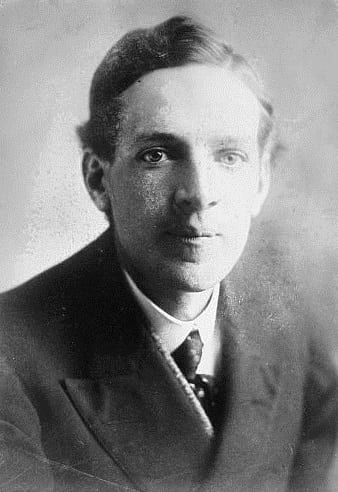My Dear Mr. Sinclair:
I have your letter of the 13th instant. I have now read, if not all, yet a good deal of your book, and if you can come down here during the first week in April I shall be particularly glad to see you.
I do not think very much of your ecclesiastical correspondent. A quarter of a century’s hard work over what I may call politico-sociological problems has made me distrust men of hysterical temperament. I think the preacher furnishes his measure when he compares you to Tolstoy, Zola, and Gorki, intending thereby to praise you. The abortiveness of the late revolution in Russia sprang precisely from the fact that too much of the leadership was of the Gorki type and therefore the kind of leadership which can never lead anybody anywhere save into a Serbonian bog. Of course the net result of Zola’s writings has been evil. Where one man has gained from them a shuddering horror at existing wrong which has impelled him to try to right that wrong, a hundred have simply had the lascivious, the beast side of their natures strengthened and intensified by them. Oliver Wendell Holmes has an excellent paragraph on this in his Over the Teacups. As for Tolstoy, his novels are good, but his so-called religious and reformatory writings constitute one of the age-forces which tell seriously for bad. His Kreutzer Sonata could only have been written by a man of diseased moral nature, a man in whose person the devotee and debauchee alternately obtain sway as they sometimes do in successive generations of decadent families or in whole communities of unhealthy social conditions. In the end of your book, among the various characters who preach socialism, almost all betray the pathetic belief that the individual capacity which is unable to raise itself even in the comparatively simple work of directing the individual how to earn his own livelihood, will, when it becomes the banded incapacity of all the people, succeed in doing admirably a form of government work infinitely more complex, infinitely more difficult than any which the most intelligent and highly developed people has ever yet successfully tried. Personally I think that one of the chief early effects of such attempt to put socialism of the kind there preached into practice, would be the elimination by starvation, and the diseases, moral and physical, attendant upon starvation, of that same portion of the community on whose behalf socialism would be invoked. Of course you have read Wyckoff’s account of his experiences as an unskilled laborer of the lowest class. Probably you know him. He was a Princeton man wholly without the physique to do manual labor as well as the ordinary manual laborer can do it, yet in going across the continent his experience was that in every place, sooner or later, and in most places very soon indeed, a man not very strong physically and working at trades that did not need intelligence, could raise himself to a position where he had steady work and where he could save and lead a self-respecting life. There are doubtless communities where such self-raising is very hard for the time being; there are unquestionably men who are crippled by accident (as by being old and having large families dependent on them); there are many, many men who lack any intelligence or character and who therefore cannot thus raise themselves. But while I agree with you that energetic, and, as I believe, in the long run radical, action must be taken to do away with the effects of arrogant and selfish greed on the part of the capitalist, yet I am more than ever convinced that the real factor in the elevation of any man or any mass of men must be the development within his or their hearts and heads of the qualities which alone can make either the individual, the class or the nation permanently useful to themselves and to others.
But all this has nothing to do with the fact that the specific evils you point out shall, if their existence be proved, and if I have power, be eradicated.




